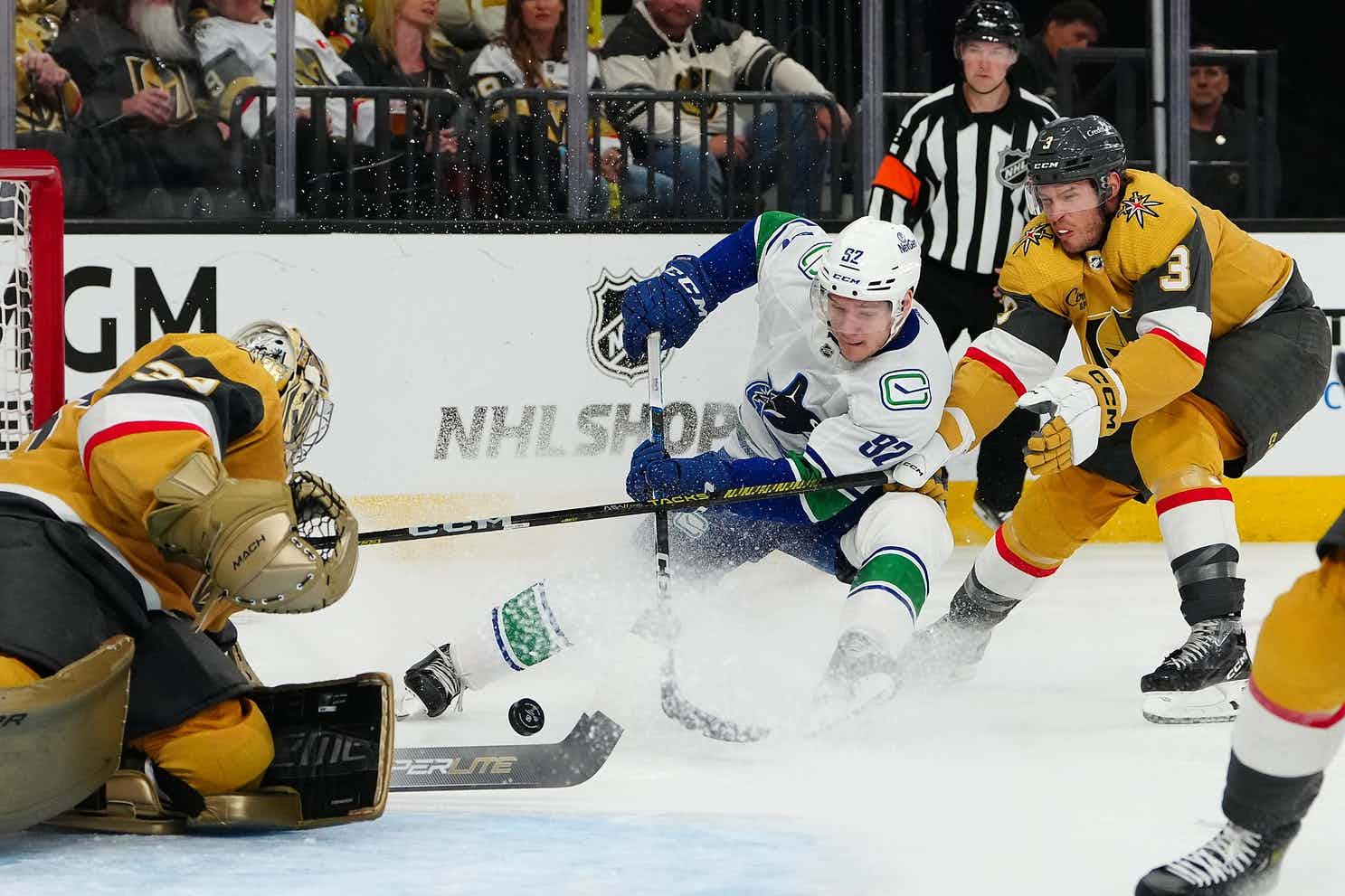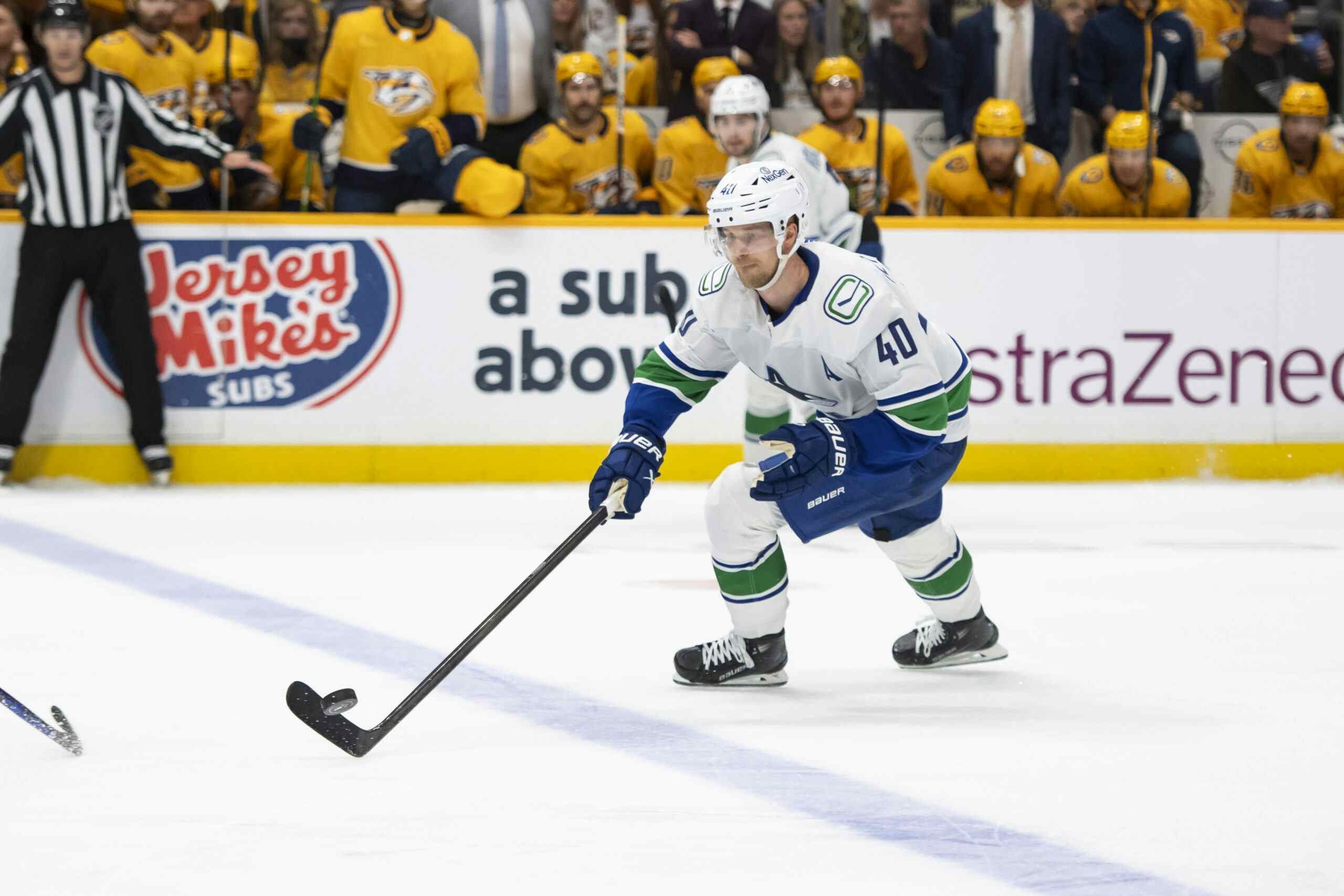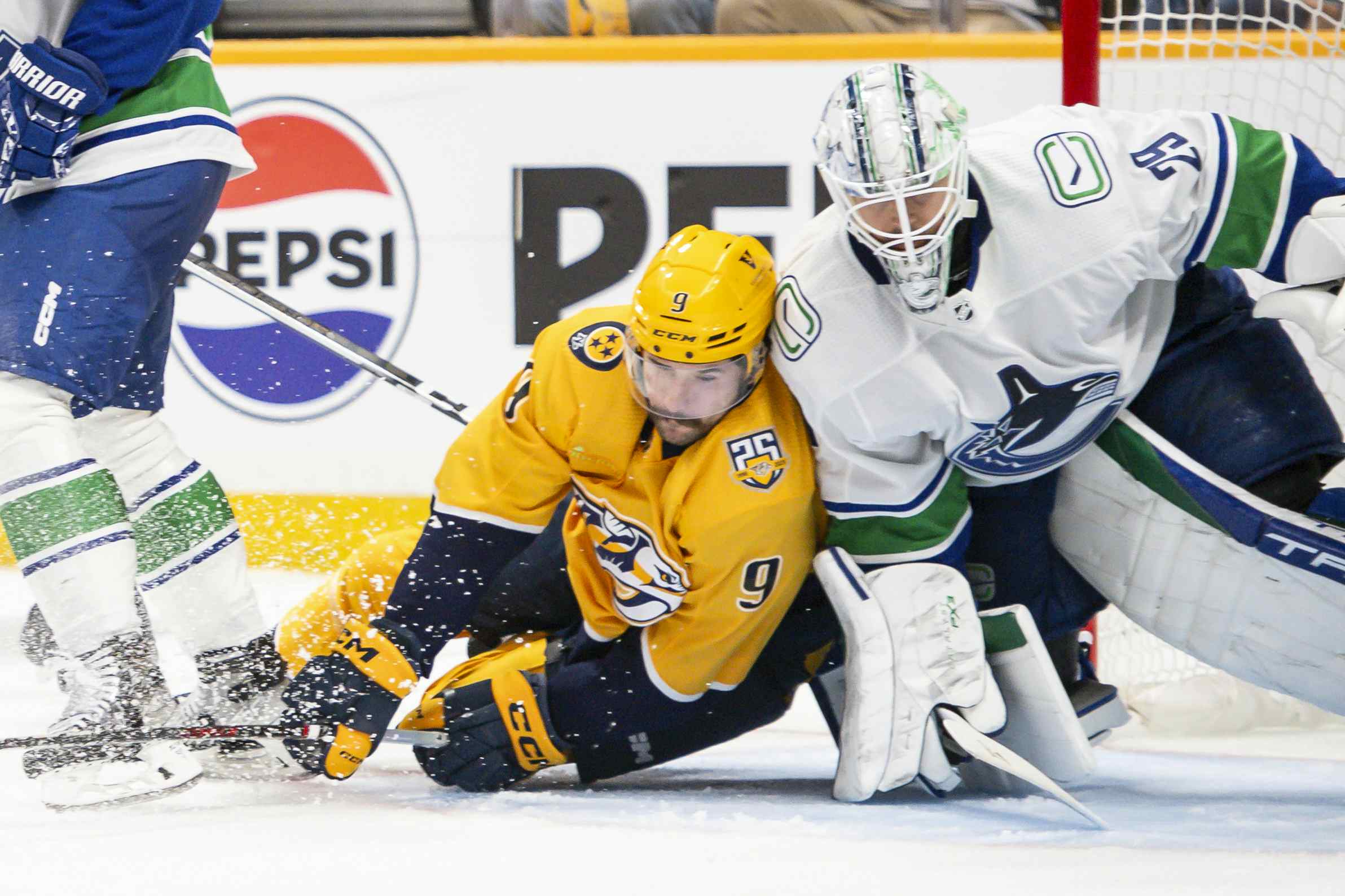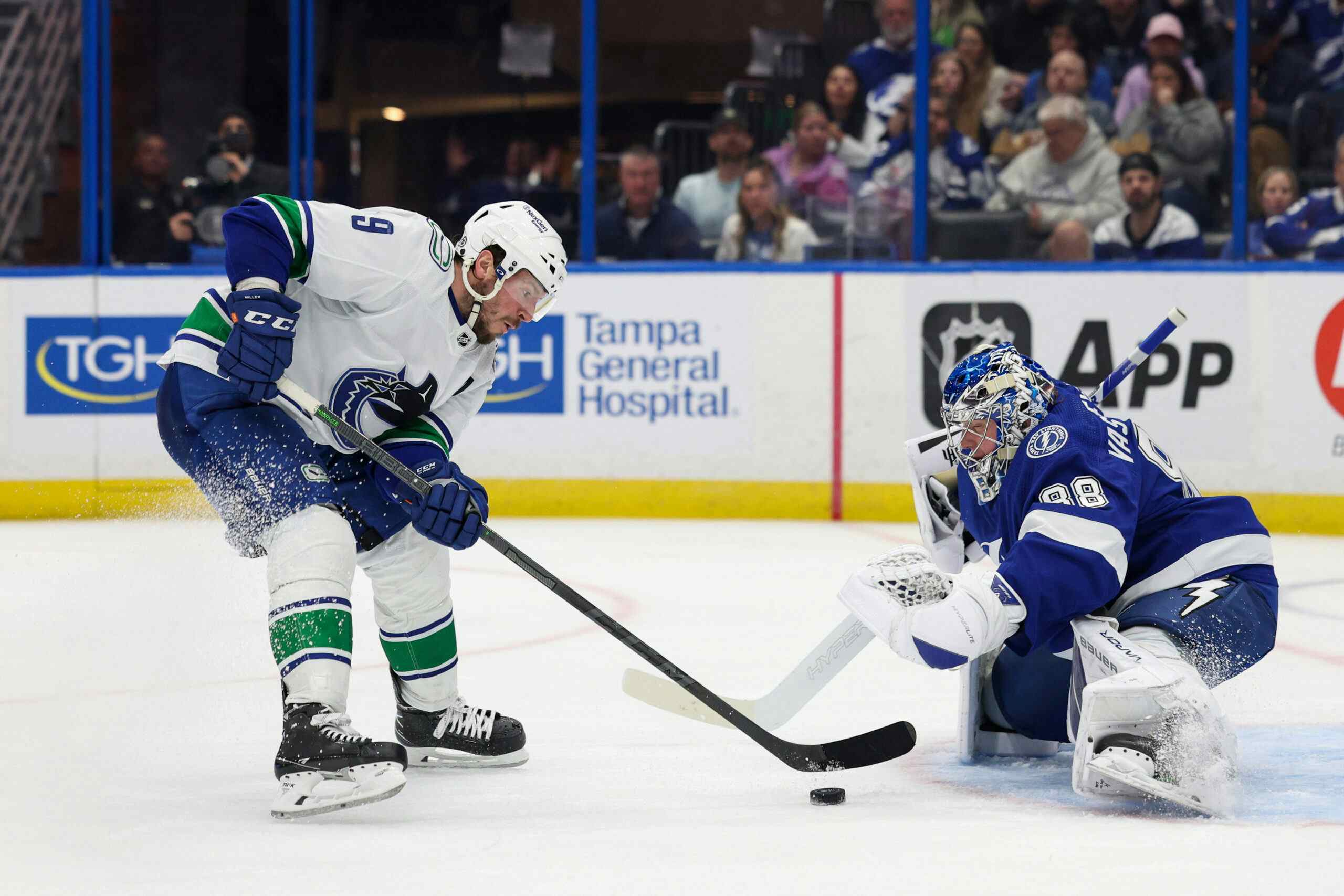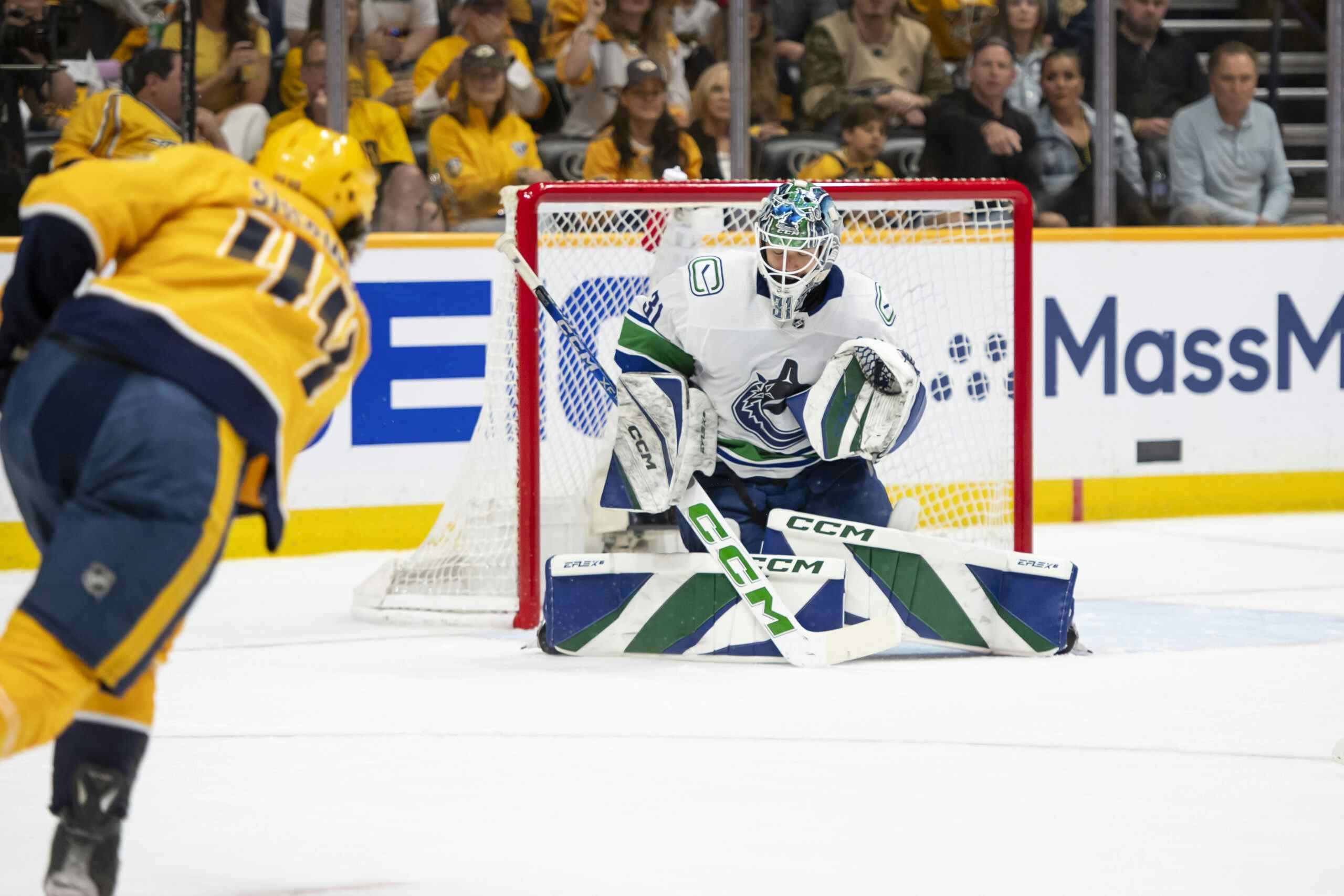First Look: Canucks Make Big Mistakes in Free Agency (Again)
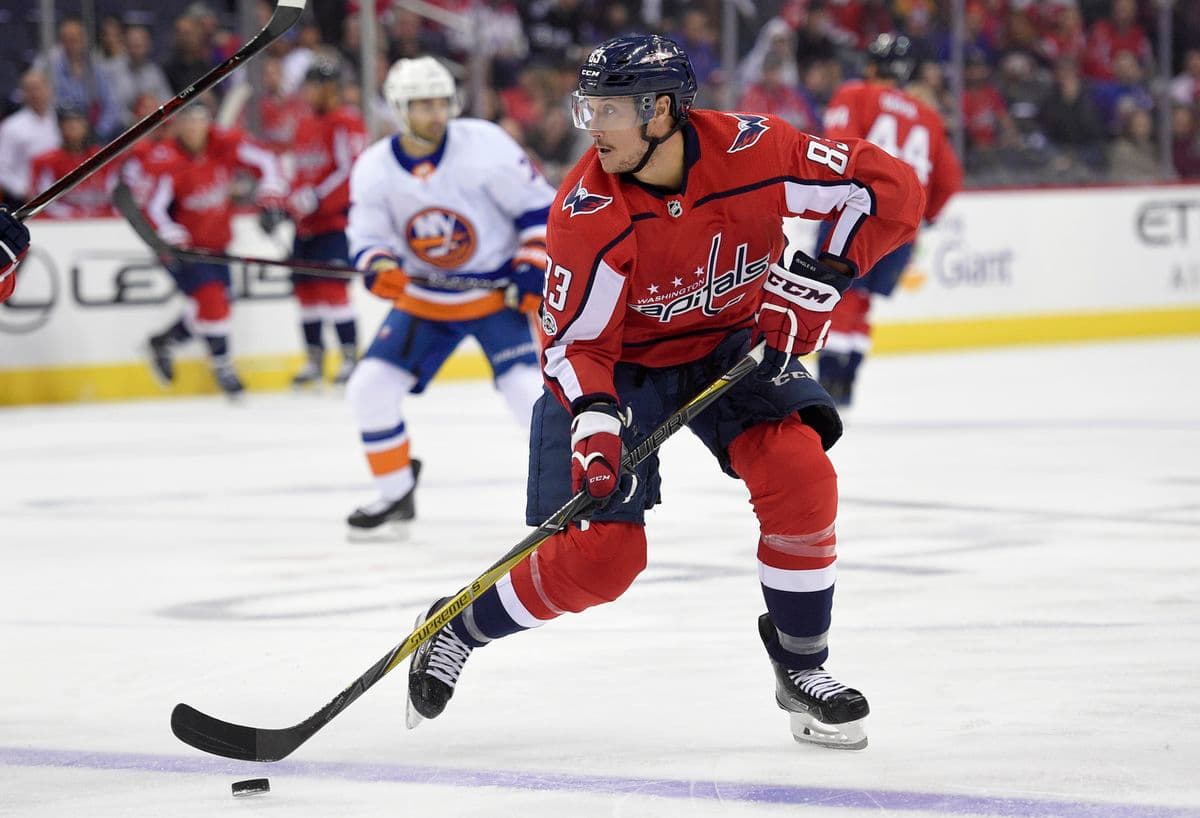
5 years ago
There was a flurry of signings to begin the NHL’s free agency period on Sunday, and the Canucks weren’t afraid to get a piece of the action. The team had built up a lot of good will with fans after selecting Quinn Hughes with the seventh overall pick in the 2018 NHL Entry Draft, so there was intrigue regarding how the Canucks would follow that up in free agency.
It’s safe to say that good will has dwindled significantly from the level it was at just a week ago.
When all was said and done, the Canucks inked three free agents on July 1 and two to long term deals. There’s a lot to unpack in each of Tim Schaller, Antoine Roussel, and Jay Beagle; so let’s take a deeper look at the players the Canucks have added into the fold.
Canucks sign Tim Schaller to a 2-year deal worth $3.8 million
In their only easily defensible move on July 1, the Canucks locked up a decent depth player in Tim Schaller to a two-year deal with an AAV of $1.9 million dollars.
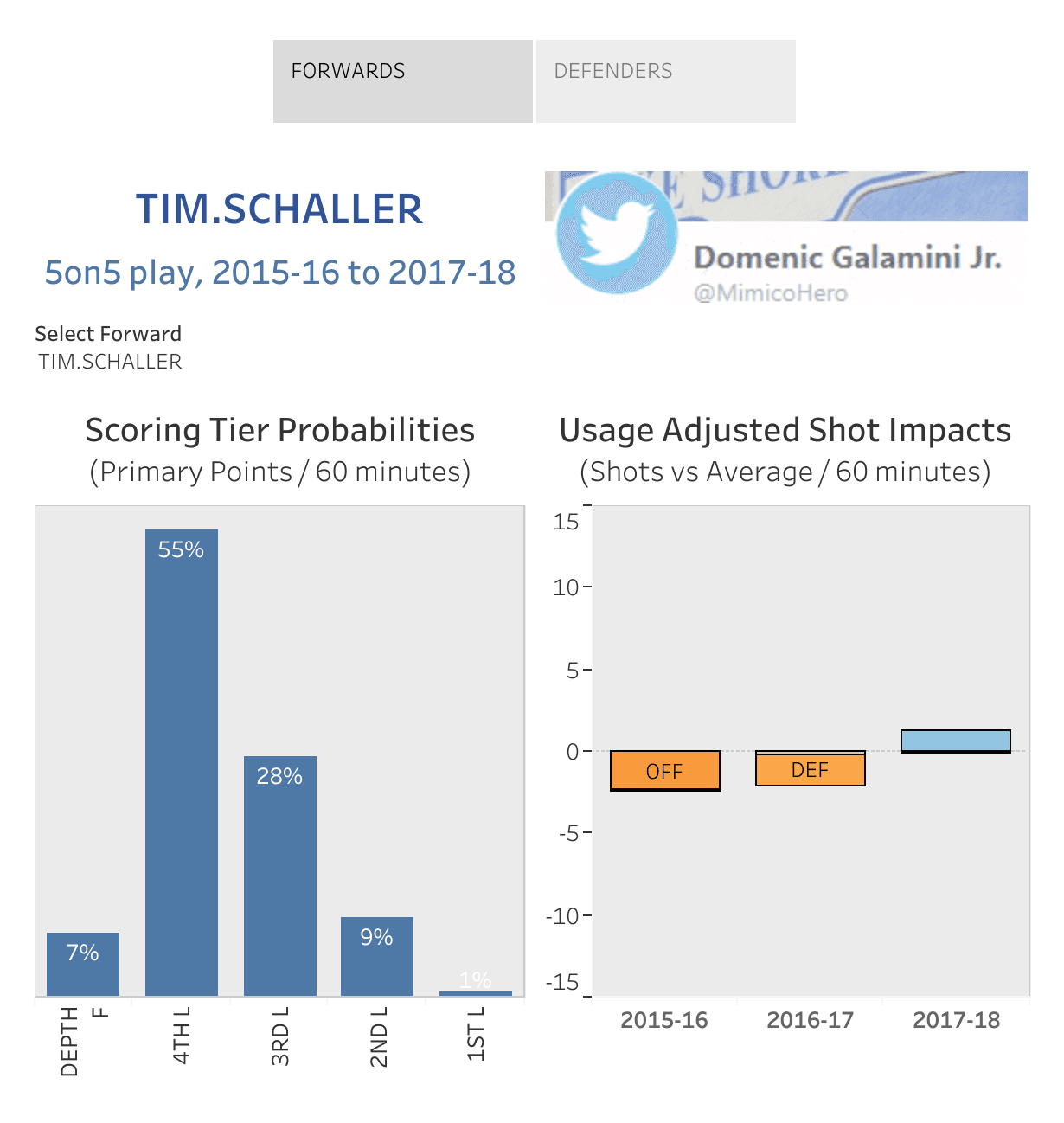
It’s taken Schaller a while to break into the league, finally playing his first full season in 2017-18 at the age of 27. We don’t exactly have a large sample to draw from, but past performance suggests he’s a reasonably competent depth centre who’s an above average shot suppressor on the penalty kill. He’ll help the Canucks in the size and grit department, he’ll be on the right side of 30 when his contract expires, and he didn’t cost the team significantly in terms of dollar value or term. He’s also spent most of his career as a depth forward so it’s unlikely he’ll be taking away a roster spot from any of the teams’ young forwards. So far, so good.
Canucks sign Antoine Roussel to 4-year-deal worth $12 million
This is where things start to get ugly. Let’s start with the good news: Antoine Roussel is actually a pretty good player. While he’s generally made a name for himself as a gritty bottom-six forward, he’s performed well by less traditional methods of analysis, too. Excluding his rookie season, he’s been on the right side of the shot share battle consistently for the past half-decade. Roussel is likely a replacement for Derek Dorsett, and he looks like a significant upgrade in virtually every regard.
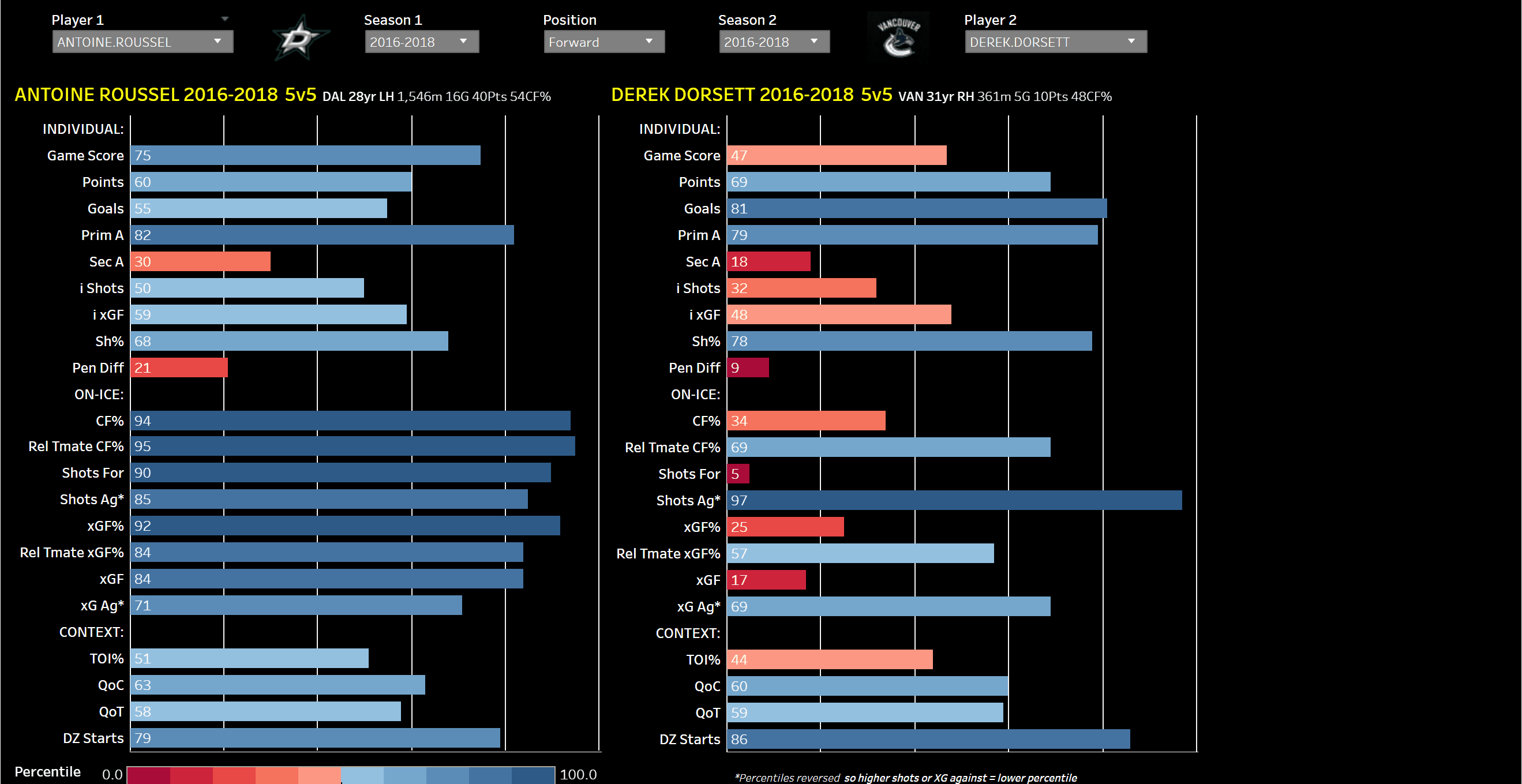
That’s the good news. The bad news is the Canucks gave Roussel a limited NTC and greatly overpaid in both term and dollar value for a player who is coming off the worst offensive season of his career and will be 32 when his contract expires. Given what we know about aging curves, it’s very likely Roussel has already played his best hockey.
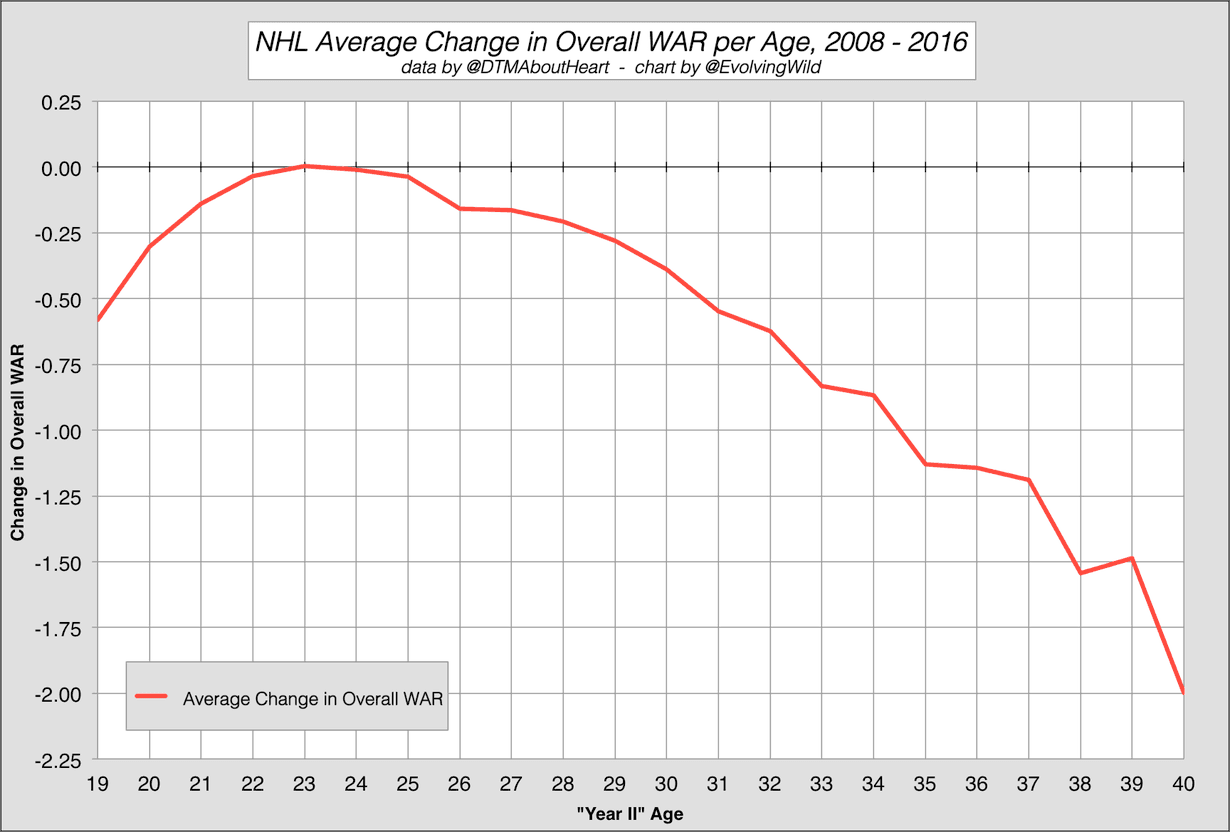
It’s a puzzling move because the Canucks aren’t supposed to be bad for much longer, and stop-gap players shouldn’t be signed to four years at three million AAV. When the Canucks are ostensibly supposed to be good again, Roussel will be on the wrong side of thirty and will likely be in decline. The deal would perhaps be defensible for a contending team, but it doesn’t make sense given where the Canucks are at in their life cycle, and it looks even worse when coupled with their other big signing of the day.
Canucks sign Jay Beagle to 4-year deal worth $12 million
The Canucks made one of their biggest unforced errors of the past four years by engaging in a bidding war for 32-year-old defensive centre Jay Beagle. In Beagle, the Canucks get a player who is not good, expensive, and will be 36 when his contract expires. So you could say he meets all the criteria a smart team would look for in a free agent signing.
Beagle has always been a bottom-of-the-lineup player, but for a couple of years he was a decent defensive centre who could be counted on to win faceoffs, remain solvent at even strength, and occasionally kill penalties. Unfortunately, his ability to stay on the right side of the shot share battle has greatly deteriorated since his thirtieth birthday.
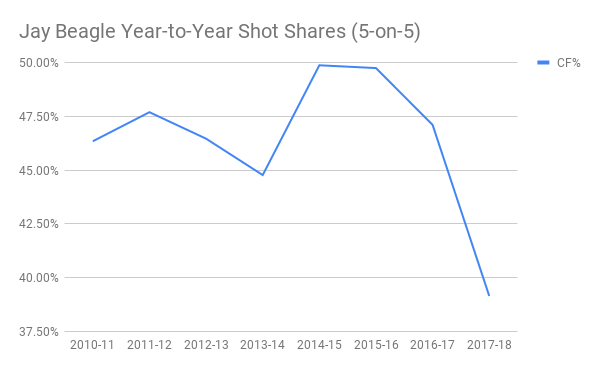
Defenders of the deal will point to the fact that Beagle saw some of the league’s most extreme defensive zone deployment last season. This is a false premise to begin with, as plenty of players with extreme defensive deployment can keep their underlying shot metrics respectable (Colton Sissons, Radek Faksa, Blake Coleman, Jordan Martinook, and Miikka Salomaki all come to mind). It does reveal one interesting piece of context, however. Only one player in the league saw less offensive zone starts last season than Beagle: Brandon Sutter. That should immediately raise some red flags. First, even Sutter managed to control north of 43% of the shot attempts despite his deployment. Second, the fact that both players were utilized similarly last season indicates that having both Sutter and Beagle in the lineup will be a major redundancy.
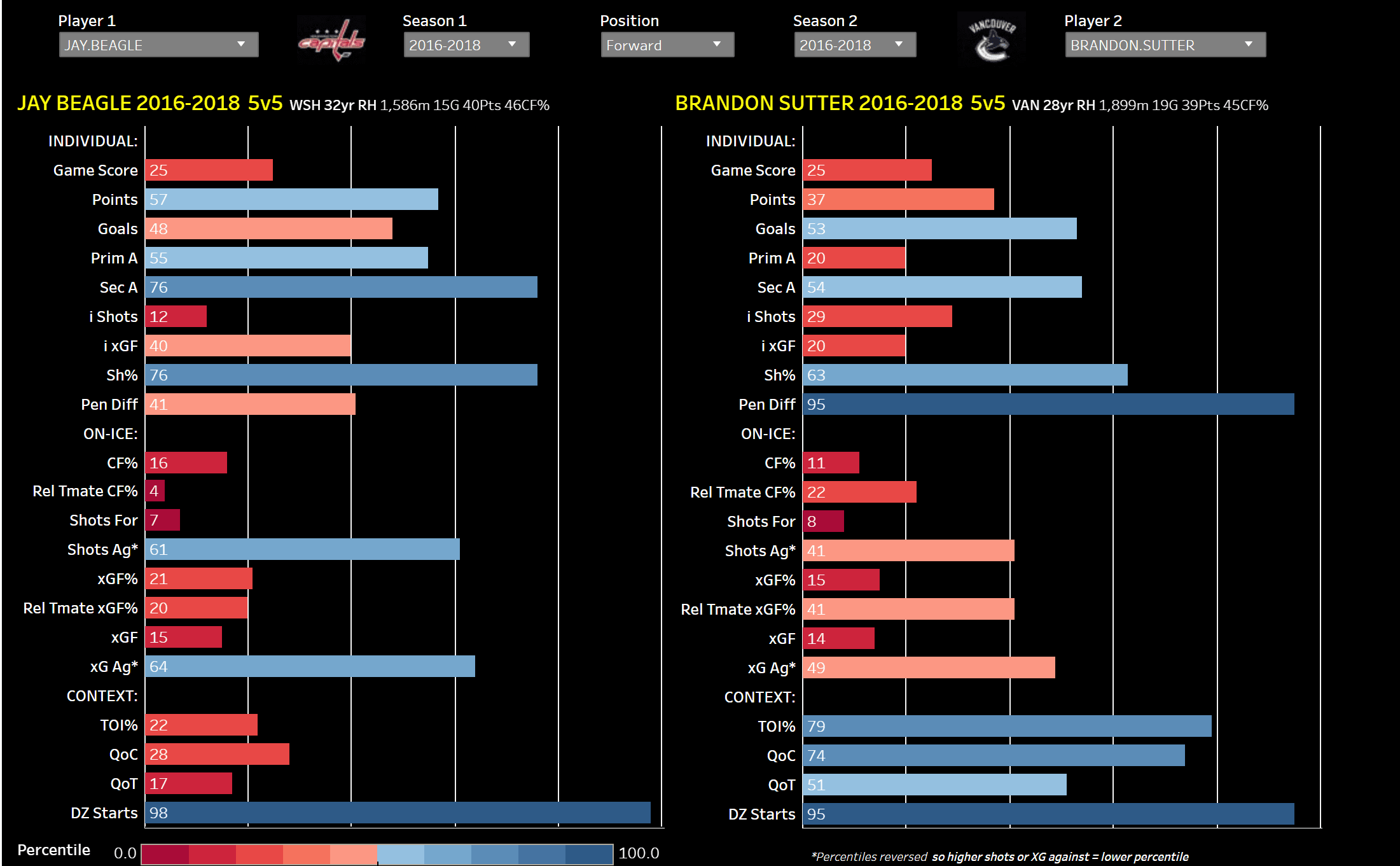
One of the lines we’re likely to hear repeated ad nauseam over the coming months is that Beagle will help the Canucks on the penalty kill, but again, the numbers are trending in the wrong direction. He was a middle-of-the-pack shot suppressor on the penalty kill for much of his career before having a lights-out campaign in 2016-17. He followed that up in 2017-18 by posting the league’s worst shot suppression numbers on the penalty kill among centres with at least 150 minutes of PK TOI.
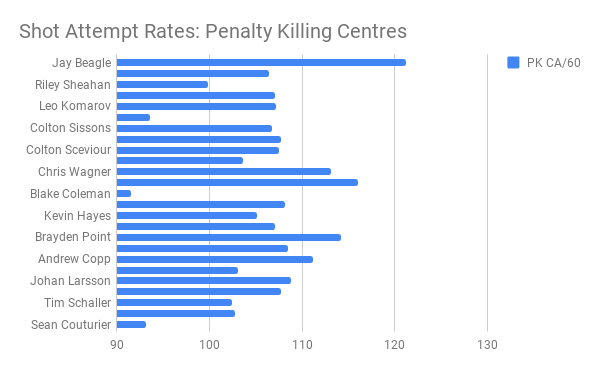
One would hope these numbers would improve as shot quality is taken into account, but Beagle’s season was in the bottom-three in fenwick against, shots against, high danger shots against, and scoring chances against. One could argue about which Jay Beagle the Canucks are getting, but at 32, a major improvement doesn’t appear likely. If the trend continues, Beagle won’t just be unhelpful to the Canucks’ penalty kill. He’ll be a liability.
It’s a shame, too. Beagle’s a great story. He’s the only player to ever win an ECHL, AHL, and NHL championship, and that experience could probably be valuable in mentorship role for some of the Canucks’ young forwards. But that’s something you look to bring in for a year or two on the cheap.
As much as it pains me to say it, there’s just no evidence indicating Beagle is very good at anything other than winning faceoffs at this point in his career (if there’s one silver lining to this debacle it’s that Beagle is still pretty good in the circle, but you don’t pay a player 12 million dollars to be good at that and literally nothing else). That the Canucks had interest in him in the first place is a head-scratcher. That they participated in a bidding war and paid a premium for his services is nothing short of baffling.
Conclusion
After these signings, the Canucks are significantly worse off than they were just a few days ago. Schaller is a decent addition in the short term, but handing out term and money to players like Beagle and Roussel is exactly the type of move that can handicap a rebuilding team in the years to come. Recent reports indicate both deals will come with limited no-trade protection, which is honestly just par for the course at this point. It’s ironic, given the way the team has used no-trade clauses as an excuse for all manner of struggles over the past four seasons. For what it’s worth, players like Chris Higgins and Jannik Hansen both made less money and had better numbers across the board by the time they earned their no-trade protection, and they did it with the Canucks. Benning and company have no such loyalty to players like Roussel and Beagle. They’re both unforced errors.
It should be clear by this point after four years on the job to plan for a post-Sedin landscape that this management group has no real plan, has never had a plan, will never have a plan. This is the lineup TSN had mocked up for the Canucks next season and it’s unlikely to inspire confidence in anyone.
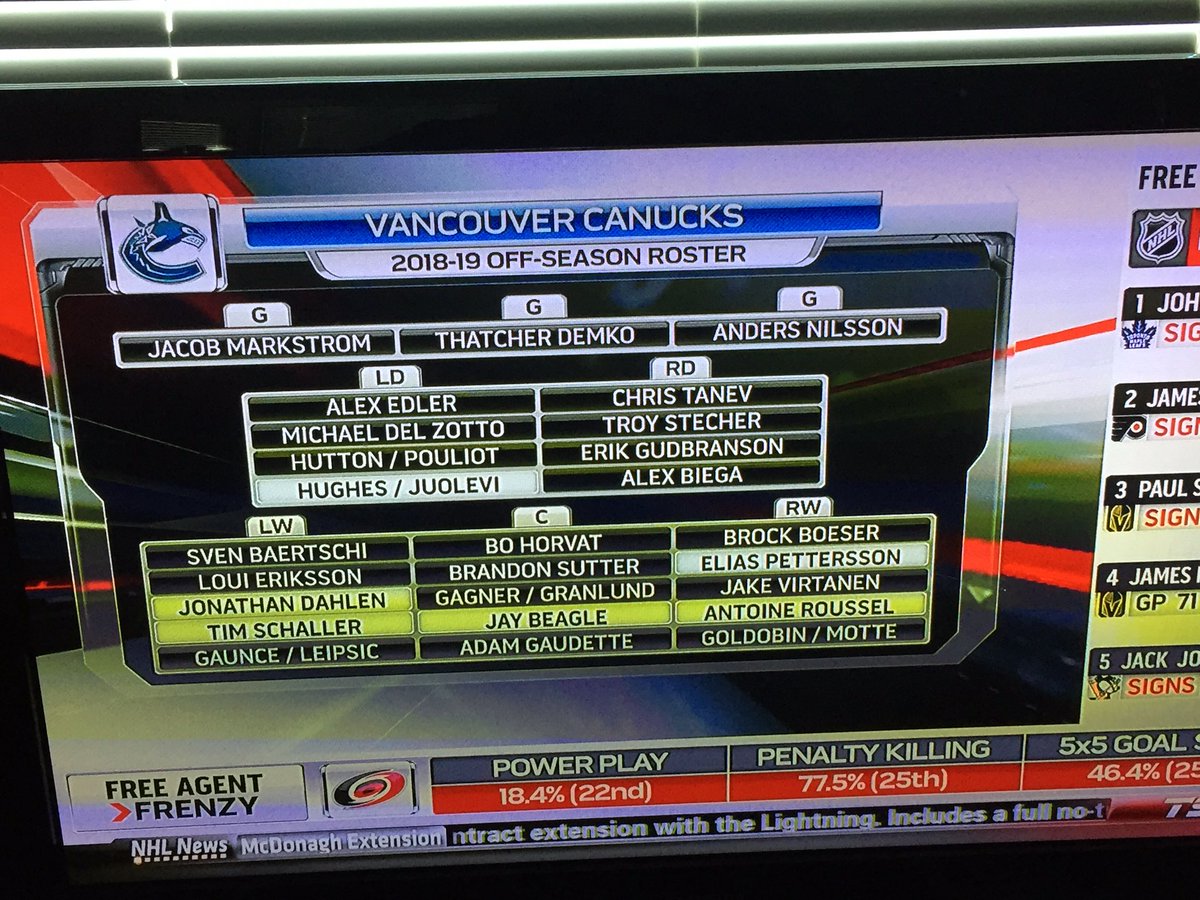
Even with a healthy Brock Boeser and the addition of Elias Pettersson, it’s entirely possible this market will be treated to yet another record-breaking offensively inept team next season. Maybe that’s to be expected to some extent. What really stings is that the Canucks have saddled themselves with deals that are likely to cause problems during what should eventually be their competitive window. By all accounts, the Canucks should be good by the time Beagle and Roussel reach the third year of their deals. Bo Horvat will be 27 when those deals expire. We aren’t talking about players who will be gone when the team is competitive again. We’re talking about players who will be eating up salary and roster spots when the team’s best young players are in their prime. In the final years of those contracts, Roussel and Beagle can’t just be taking up space. They have to help the team win, and he worth the money that’s being allocated to their services.
At this juncture, there’s absolutely no evidence that’s going to happen.

